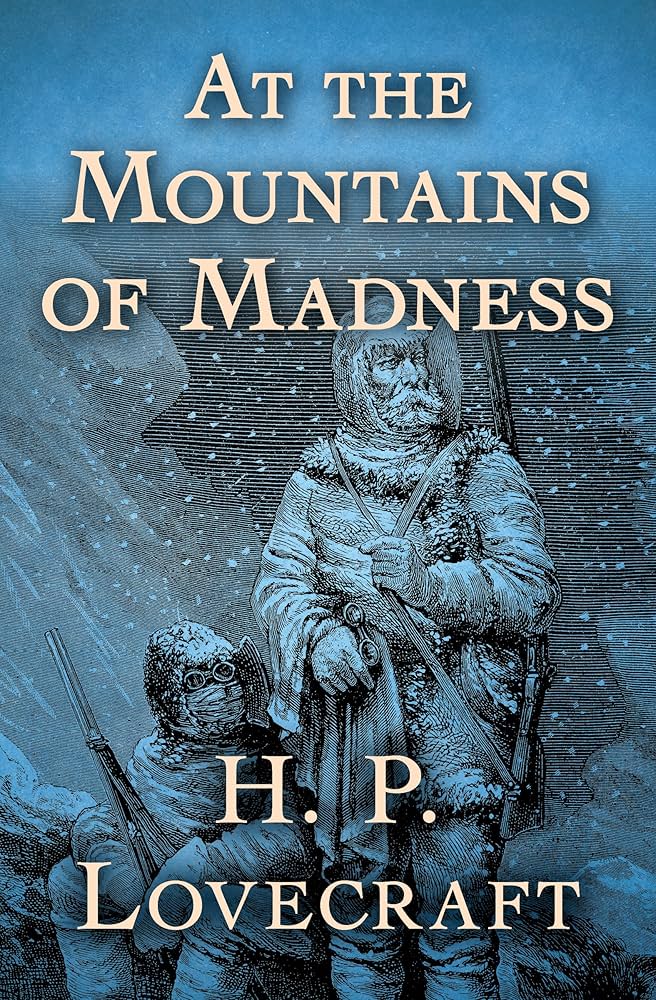
Title: At the Mountains of Madness
Author: H.P. Lovecraft
Genre: Cosmic Horror, Science Fiction, Classic Literature
Summary:
When a scientific expedition ventures deep into the uncharted wastes of Antarctica, they expect to uncover fossils and geological samples, not the remnants of an ancient alien civilization buried beneath the ice. Through the eyes of Professor William Dyer, the tale unfolds as a detailed account of discovery, dread, and descent into madness. What begins as a study of long-dead creatures soon spirals into a confrontation with forces that defy understanding.
At the Mountains of Madness is one of Lovecraft’s most influential works, blending scientific realism with cosmic terror. Its depiction of an ancient alien race and their decaying city shaped the tone and scope of modern science fiction horror, inspiring generations of storytellers from John Carpenter to Ridley Scott.
Content Guide:
- Psychological horror, paranoia, and existential dread
- Descriptions of corpses, dissection, and decay
- No sexual content or profanity
- Moderate violence and disturbing imagery
- Slow, academic pacing and antiquated language
My Thoughts:
This is Lovecraft at both his most ambitious and his most divisive. At the Mountains of Madness is part scientific field report, part descent into cosmic horror. The pacing can be glacial (har har), but there is a charm to just absorbing the sterile calm of academia as it slowly transitions to an in-depth exploration of an author’s worldbuilding.
I should say upfront that while I am a fan of Lovecraft, I am not impressed with critiques of his work that use the same generic praise it has received for a century now. Yes, Lovecraft pioneered cosmic horror and the incomprehensible vastness of the unknown. But as a contemporary reader, I need to be honest with both my own reaction and what I may or may not recommend to my readers.
Like all Lovecraft, the story’s true power is in its atmosphere. You feel the endless cold, the oppressive silence, and the creeping realization that humanity’s place in the cosmos is insignificant. However, psychological tension doesn’t have the same impact on modern readers as it did in Lovecraft’s time, and with no solid primary conflict to resolve, the story may drag for readers who aren’t satisfied with vague statements about their insignificance in the universe.
If you’re willing to meet Lovecraft with patience and an open imagination, then At the Mountains of Madness can reward you with a haunting exploration of discovery and cosmic scale. However, if you prefer your Lovecraft with a bit more plot, I would recommend The Dunwich Horror, The Colour from Space, or The Dream-Quest of Unknown Kadath, all of which provide both atmosphere and a more immediate reason to keep turning pages.
Disclaimer: This site contains affiliate links. If you click through and make a purchase, I may earn a commission at no additional cost to you. I only recommend products and services that I believe in and that may be of value to my readers. Thank you for your support!